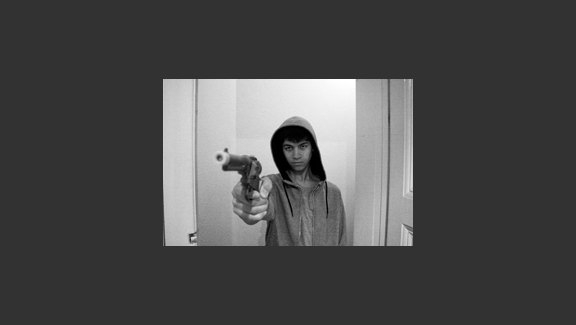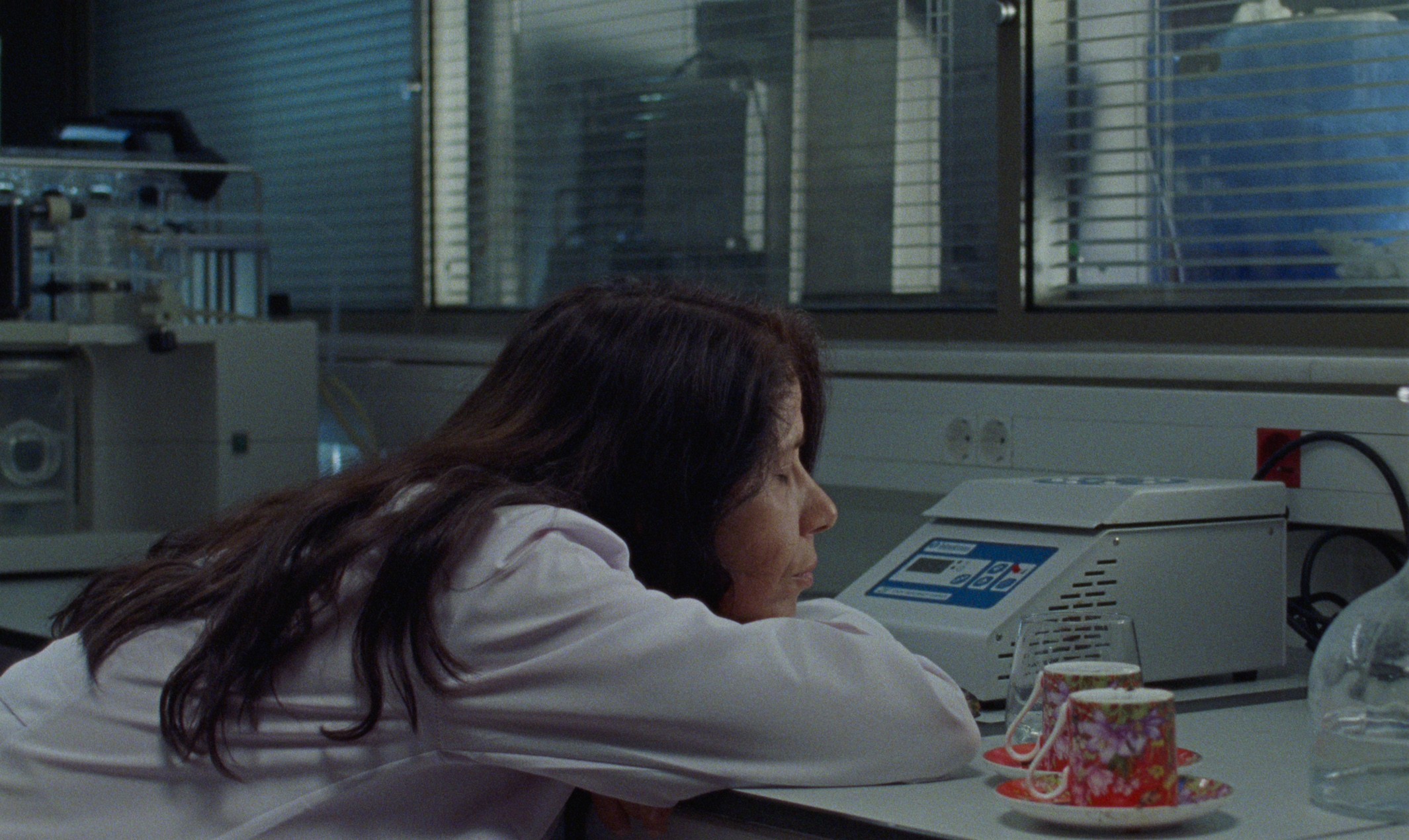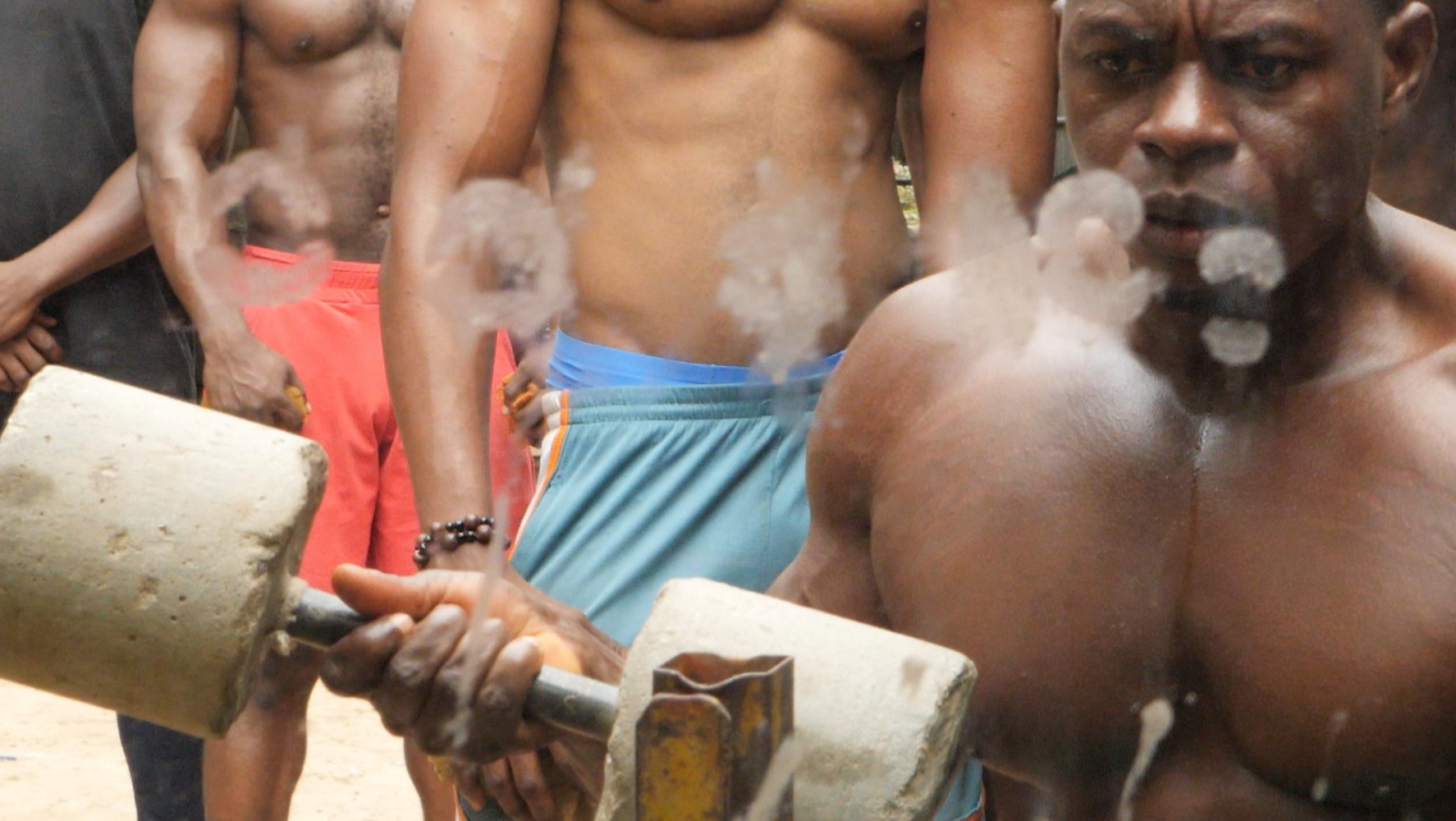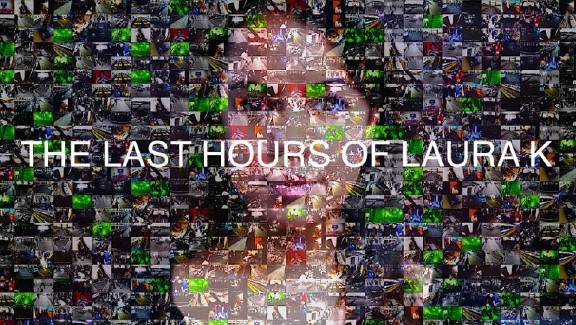The Last Hours Of Laura K
Synopsis
Today was meant to be all about building bridges with her sister, but after a late night flirtation and an early morning work call, Laura Kitchens' life is about to change in ways she could never imagine. As the ticking clock counts down the hours till her death can she solve the mystery of who is stalking her, help her sister not repeat the same mistakes she made and assist her boss in saving the mysterious SaturnEye deal that hangs in the balance?
Shot in real time using found footage of Laura’s final day, this is an immersive murder mystery that merges social media and film. Viewers are able to access Laura and the other characters via Facebook, Twitter,
Instagram, LinkedIn. A ground-breaking film. A drama and immersive digital experience all in one. Placing the audience at the heart of the story.
Using 24 hours of footage from the fictional surveillance programme SATURNEYE, the film is a disconcertingly intimate, unfiltered and impartial look into Laura's last hours before her death.
Details
- Year
- 2015
- Type of project
- Features
- Running time
- 1440 mins (24 hours)
- Director
-
Gabriel Bisset-Smith
- Producer
- Jon Davenport
- Co-Producer
- Gabriel Bisset-Smith, Kenny Emson, Rachel Delahay, Ed Sellek
- Executive Producer
- Kate Rowland
- Editor
- Gabriel Bisset-Smith
- Screenwriter
- Gabriel Bisset-Smith, Kenny Emson, Rachel Delahay, Ed Sellek
- Director of Photography
- Any Hui
- Sound
- The Farm
- Composer
- Gwilym Gold
- Principal cast
- Rachel Delahay, Susie Wokoma
Genre
Categories
Production Status
Production Company
BBC
BBC Broadcasting HousePortland Place
London
W1A 1AA
Sales Company
Page updates
This page was last updated on 12th May 2025. Please let us know if we need to make any amendments or request edit access by clicking below.
See also
You may also be interested in other relevant projects in the database.
 Tomato Soup
Tomato Soup
Director: Gabriel Bisset-Smith
Year: 2011
Set in the parallel worlds of gritty, urban reality and bright, sunny fantasy Tomato Soup is the story of a teenage boy's journey to avenge the death of a loved one whilst trying to imagine a better life for himself.
 İki Laborantın Yorgun Saatleri (The Weary Hours of Two Lab Assistants)
İki Laborantın Yorgun Saatleri (The Weary Hours of Two Lab Assistants)
Director: Burak Çevik
Year: 2026
At midnight, two lab assistants study an unknown substance using machines and procedures that are unclear to us. They pursue knowledge through the strict logic of the laboratory. As exhaustion settles in, one of the assistants brews Turkish coffee for the other, and the night shifts. The process becomes a fortune-telling, and the scientific gaze gives way to intuition. Moving from analysis to foresight, the two women imagine another method of knowing, a space where rational inquiry and intuitive perception coexist. Official Selection Berlin International Film Festival 2026 - Forum Expanded - World premiere
 MUSCLE
MUSCLE
Director: Karimah Ashadu
Year: 2025
With no single protagonist or linear narrative, the film immerses the viewer in a spectacle of strength through an intimate portrait of bodybuilders in the slums of Lagos. Inflated muscles, bulging veins and luminous skin glistening with sweat fill the screen. Shot almost entirely in close-ups, the camera hovers so near its subjects, moving softly like breath on skin, that at times figures become blurred, abstracted forms. Karimah Ashadu’s slow, measured pans across backs, chests and arms meditate on visibility, drawing attention to the embodiment and representation of the Black male body without rendering it singular or fixed. The metallic clang of barbells is punctuated with guttural sounds of exertion set against the ambience of the streets. Breath and muscle move in syncopated sonic choreography, and the men’s commitment to the ritual of maintaining the body is evident. Official Selection Berlin International Film Festival 2026 - Forum Expanded - International Premiere
